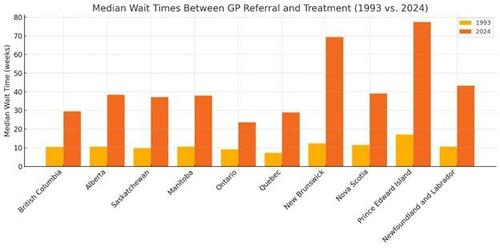FIIs often adopt a global perspective, closely monitoring the broader international economic landscape. In the face of a global economic slowdown, India stands out as a resilient and potentially lucrative market. Also, FIIs may perceive India as a strategic investment destination, viewing it as a market with growth potential and untapped opportunities.
Additionally, their optimism could be driven by the proactive structural reforms initiated by the Indian government, which have garnered attention and confidence from international investors. Concurrently, domestic retail investors have displayed resilience, investing significantly despite market fluctuations, as evidenced in record monthly SIPs crossing ₹16,500 crore in October.
The asset management reality is that FIIs have to park their and their clients’ monies somewhere amidst the prolonged global economic slowdown. The Indian economy and its future potential is being bet on. But then, let us not take it for granted. FIIs and other global investors are unforgiving and move their monies far quicker than you can say ‘hi’ if they see better alternatives.
It’s crucial to acknowledge that India’s equity market is intricately linked to global economic conditions. Decisions and policies of global economic giants such as the US Federal Reserve wield significant influence over the trajectory of Indian equities. Additionally, international trade dynamics and geopolitical events can inject unforeseen volatility into the equation.
With Parliamentary Election in India due by April-May 2024, many experts predict a pre-election rally in India’s equity markets. Some Indian analysts have estimated that stock markets could fall by 25% if the current ruling party does not return to power. But from historic experience, in the months leading up to such elections the money market tends to experience a cautious atmosphere. Companies and investors exercise prudence while awaiting election outcomes and potential policy changes.
Political euphemisms often come into play when describing stock market euphoria, particularly when governments seek to align positive economic sentiment with their policies. Leaders may use terms such as “economic boom” or “market resilience” to convey a sense of financial prosperity and stability under their governance. This linguistic strategy aims to present a favourable image to the public, even during periods of heightened market enthusiasm that may be subject to volatility.
While market indices offer insights into market vitality and investor confidence, these are just one facet within a broader economic landscape. These are not a reflection of the overall economy. Economic well-being is closely tied to indicators such as GDP growth, unemployment rates, inflation, and fiscal policies, providing a holistic view of a nation’s economic health.
In economic growth conversations, one cannot ignore interest rates and inflation numbers. The looming prospect of key interest rates hovering around the 5% mark in India for the first half of 2024 raises substantial concerns in the equity market. Heightened interest rates immediately translate to increased borrowing costs, burdening businesses and individuals and potentially curtailing capital expenditures, leading to sluggish economic growth. This ripple effect has the potential to erode corporate profits, and could set the stage for an equity market downturn.
Moreover, elevated interest rates enhance the allure of alternative investments, particularly fixed-income securities such as bonds that offer stable returns. Consequently, equities may face strong competition for investors’ funds.
Also, inflation significantly shapes the consumption cycle by altering spending patterns when prices rise. This impacts businesses as higher costs can squeeze profit margins and influence corporate results. Monitoring inflation is crucial for investors as it signals potential shifts in interest rates and government policies, directly affecting economic stability and corporate performance.
The sustainability of stock market valuations is intrinsically tied to the underlying strength of actual corporate results and profitability. Market valuations, driven by investor confidence, are ultimately rooted in the real performance of companies. When corporate results demonstrate robust growth, consistent profitability, and effective management, investor trust is reinforced. This trust, in turn, supports the valuation levels.
Investors’ Fear of Missing Out (FOMO) can also be a driving force behind a surge in market indices, creating a momentum that propels valuations. However, the sustainability of this upward trajectory hinges significantly on the correlation between market enthusiasm and actual corporate results. If corporate performance fails to meet elevated valuation expectations fuelled by FOMO, the market is susceptible to corrections. FOMO-driven rallies may lead to temporary market exuberance, but without substantive support from robust corporate results the foundation for sustained growth is compromised.
Estimating or predicting potential market valuations over a specific time period is a formidable challenge due to multiple variables that shape financial landscapes. Markets are influenced by a multitude of factors, including economic indicators, geopolitical events, policy decisions, and unforeseen global developments. The interplay of these variables introduces an inherent complexity that defies precise forecasting. Additionally, investor sentiment, which can be highly reactive and unpredictable, further complicates the task.
Predicting higher stock market valuations in the near future can be viewed with scepticism, as it might be perceived as a strategic ploy to generate short-term selling opportunities. Analysts or market participants making such predictions often attach caveats, providing a safety net for their forecasts. If market indices fail to meet the expected growth, these caveats serve as a convenient excuse, attributing unforeseen events or external factors as reasons for the unmet expectations. On the other hand, if the predictions align with the market’s trajectory, those making the forecasts may use it as an opportunity to claim credit for insightful analysis.
In short, India’s general election next year, business sentiment, corporate results, domestic investors’ mood, inflation, and interest rates – all these impact equity market valuations. That will be the potboiler called Sensex.
Dr. Srinath Sridharan is a policy researcher & corporate advisor.















